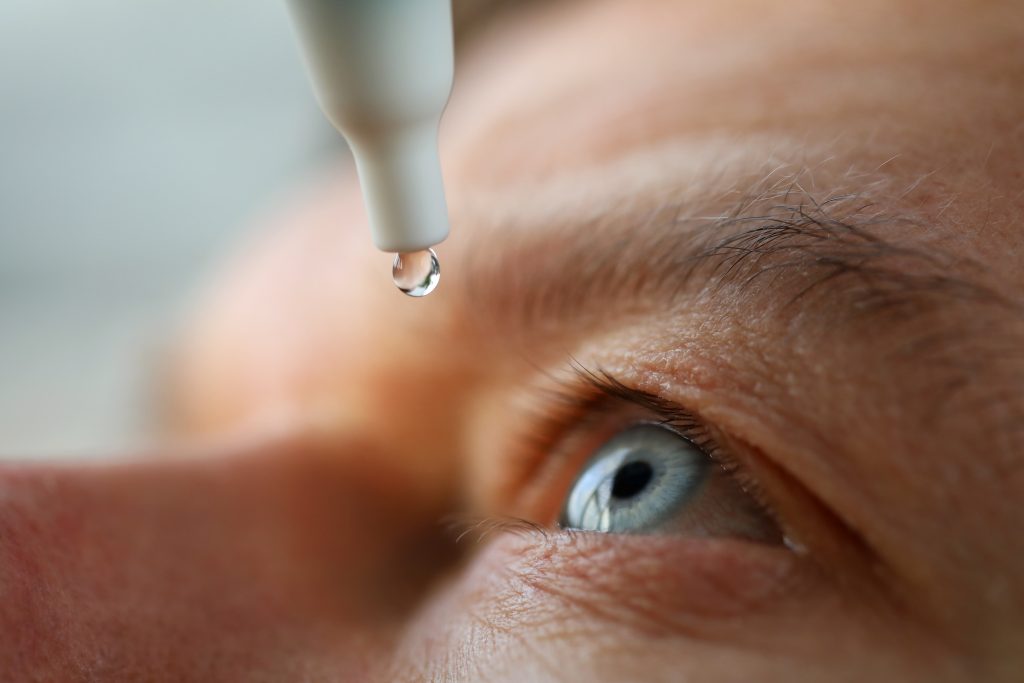Dry Eye
If your eyes are dry or irritated, you’re not alone. Dry eye syndrome is an eye condition that the ophthalmologists at Scott & Christie Eyecare Associates in Cranberry Township most commonly see.
What are the Symptoms of Dry Eye?
Many symptoms can come along with dry eye syndrome. These may include the following:
- Burning
- Redness
- Experiencing a feeling like there’s sand or gravel in your eye
- Having blurry vision
- Noticing it’s become less comfortable to wear contact lenses
- Eyes that water more frequently
Symptoms associated with dry eye syndrome may worsen as the day progresses, especially when accompanied by activities like reading, using a computer, or watching TV. You may also see symptoms worsen if you’re in a windy or dry place.
Doing things that require focusing your eyes will make these symptoms worse, so it’s essential to keep this in mind depending on what activities you’re completing.

What Causes Dry Eyes?
Dry eyes often occur for one of two reasons. The first is because your eyes do not produce enough tears. The second reason is that the tears being produced lack quality, meaning they cannot deliver sufficient nutrients to the eyes.
You may also have dry eyes for reasons like thyroid disease, allergies, or connective tissue disease.
Treating Dry Eyes

Although there is no cure for dry eyes, they can be managed using appropriate treatment methods. One effective way of treating dry eyes is with artificial tears, which can help minimize irritation you may experience from the dryness.
You can also use a humidifier at your office or home to bring much-needed moisture back into the air, or wear sunglasses outdoors to protect your eyes from contaminants and particles like dust and dirt. Patients wearing eyeglasses should have lenses treated to protect the eyes from harmful ultraviolet rays and infrared radiation.
Those with extremely dry eyes may benefit from punctal plugs to close the tear drains to preserve the moistest layer of the eye and keep tears from evaporating from its surface too quickly. There are also prescription medicines as well as procedures that can help patients manage dry eye symptoms. Patients who have tried other treatments without success may need to use a combination of the above treatments to see results and reduce symptoms.



